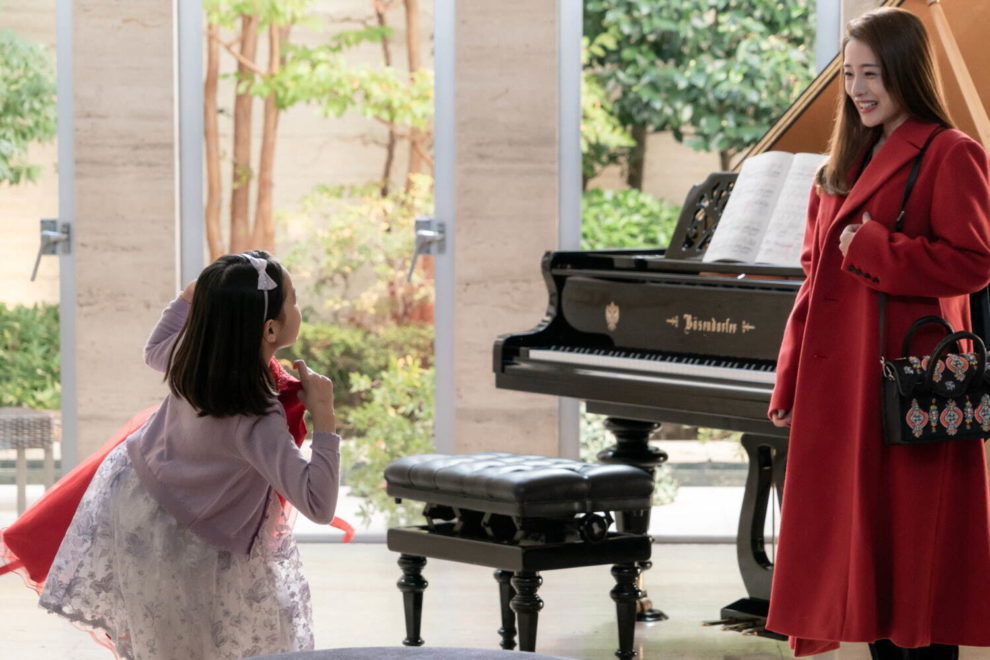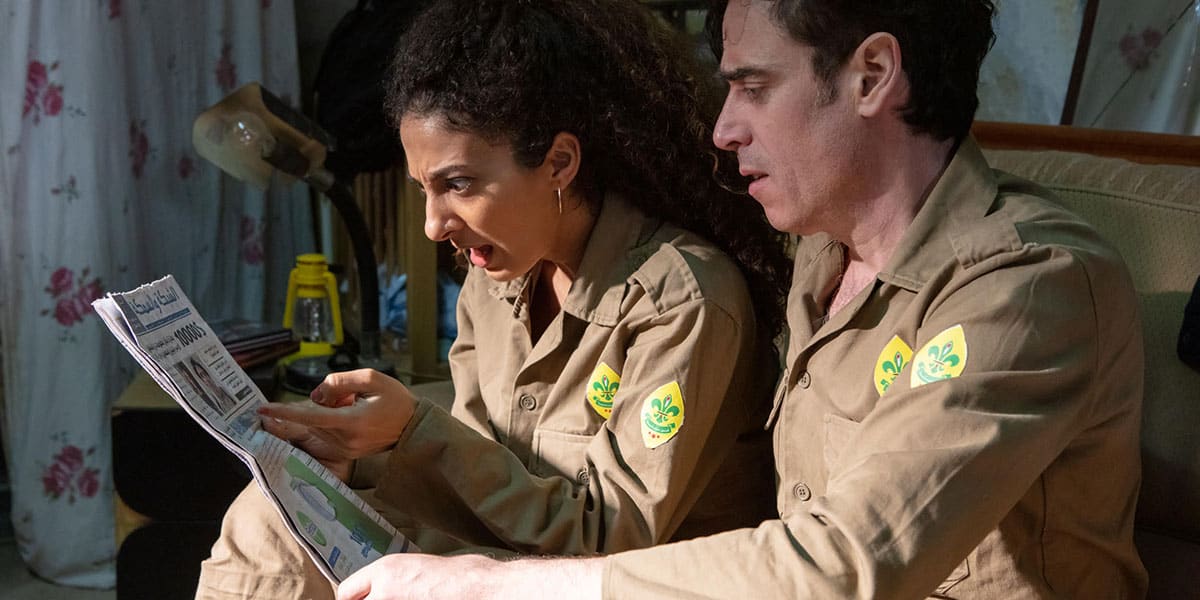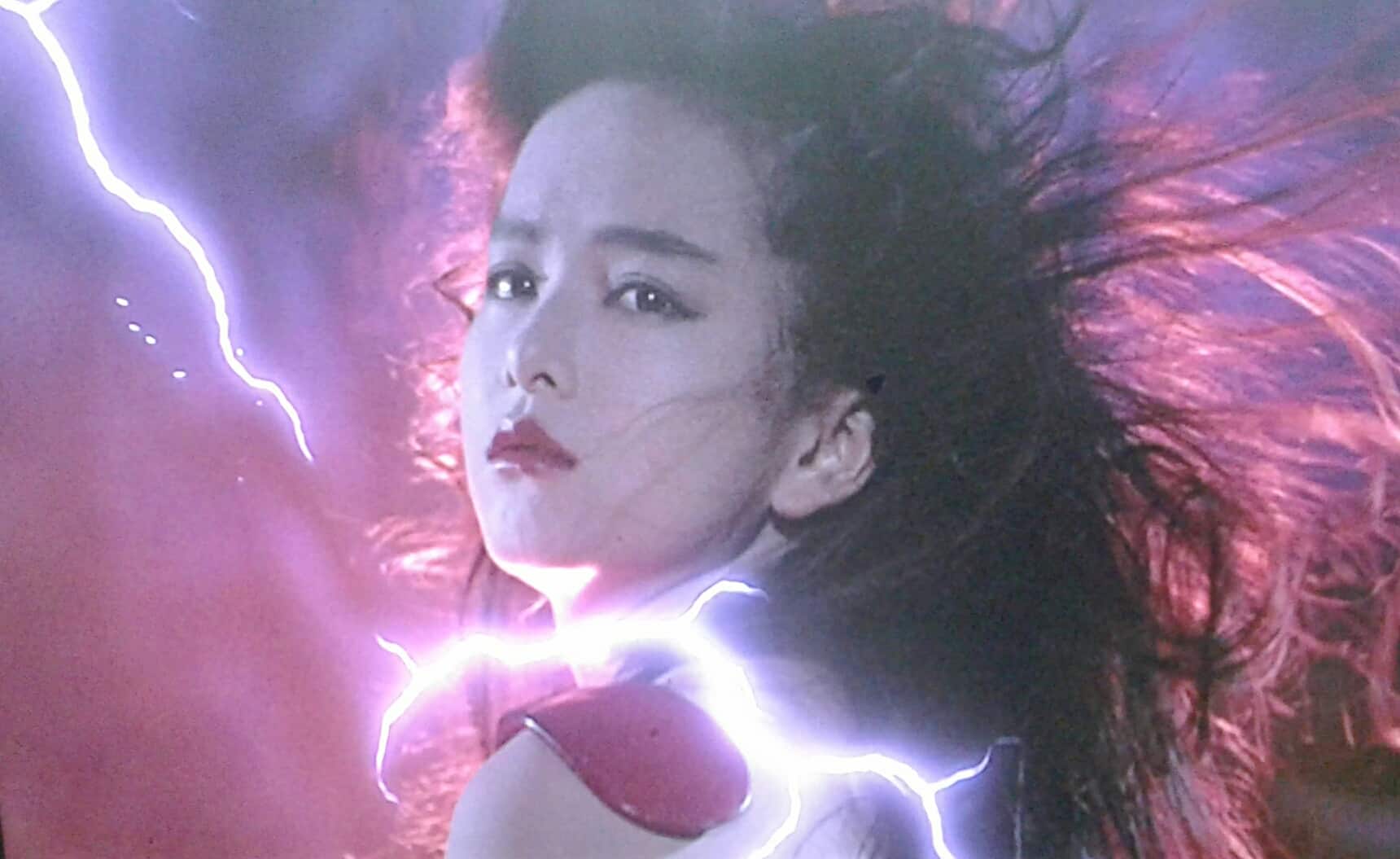In tearjerker “And So The Baton Is Passed”, an adaptation of the eponymous hit novel by Meiko Seo, director Tetsu Maeda follows the stories of two girls and their stepparents. Yuko (bubbly and very likable Mei Nagano) is a girl who smiles regardless of what the world throws at her. Her doting stepfather Morimiya (Kei Tanaka in a performance that manages to make every scene feel like a J-drama) is an easy-going man who raises the girl after her mother disappeared one day. Miitan (Kurumi Inagaki) is a girl who cries easily, who is told by her new stepmother Rika (Satomi Ishihara in an equally exuberant and ominous performance) to smile whatever happens. One day, the girl's chocolate-obsessed father Mito (Nao Omori) tells Miitan and Rika that he is moving to Brazil to make the best chocolate in the world. He leaves his daughter and wife to fend for themselves. Soon after, Rika starts looking for a new husband.
“And So The Baton Is Passed” is screening at Toronto Japanese Film Festival

“And So The Baton is Passed” is the type of gut-wrenching melodrama that relies less on characters relationships and their development (all of which are close to paper-thin) and more on surprise twists. That is all good and a valid way of keeping the viewers reaching for the closest napkins, but only if the twists are novel and worthy. But this is not the case with this tearjerker. Rather, it's the opposite. The so-called twist which is supposed to hit us like a jackhammer can be seen from a mile away, not only by seasoned melodrama fans, but by anyone whose seen virtually any film from this kind. Especially if it was “Initiation Love.”
But even the uninitiated can see the shocking twist that “And So The Baton Is Passed” relies so heavily on from a mile away. The main reason for that isn't the writing, nor probably the novel this movie is based on, but the somewhat sloppy direction by Tetsu Maeda. He fills the movie with scenes of foreshadowing whose aim is to make the “aha!” moment at the end (and the tears it's supposed to produce) even stronger. The problem, however, is that he doesn't seem to be that apt at this and these “mysteries” end up being way too obvious. So if in the end, when the big reveal finally comes, tear do fall, it is from boredom or for the wasted time, if anything.
Treating the audience as a bunch of imbeciles and trying to squeeze a few tears out of them might not be the worst offense of this melodrama, though. The entire premise, and especially its main allegory, are much much worse. At the very end of the film (and this is not a spoiler because it is in the title), Yuko is referred to by one of he male characters as a ‘baton.' As in something to be passed from one person to another, without any agency of her own. It is very easy to see how problematic this view of women is. Moreover, it is something that we see thorough the entire flick. Miitan is passed from one person to another, without much real care for her feelings. Rika passes herself to various men so she and Miitan can live an easier life. This ends up objectifying all three female characters to a degree that is beyond reprehensible, and no, there isn't anything romantic in that. Instead, it is just bad and lowbrow, like this entire film.















